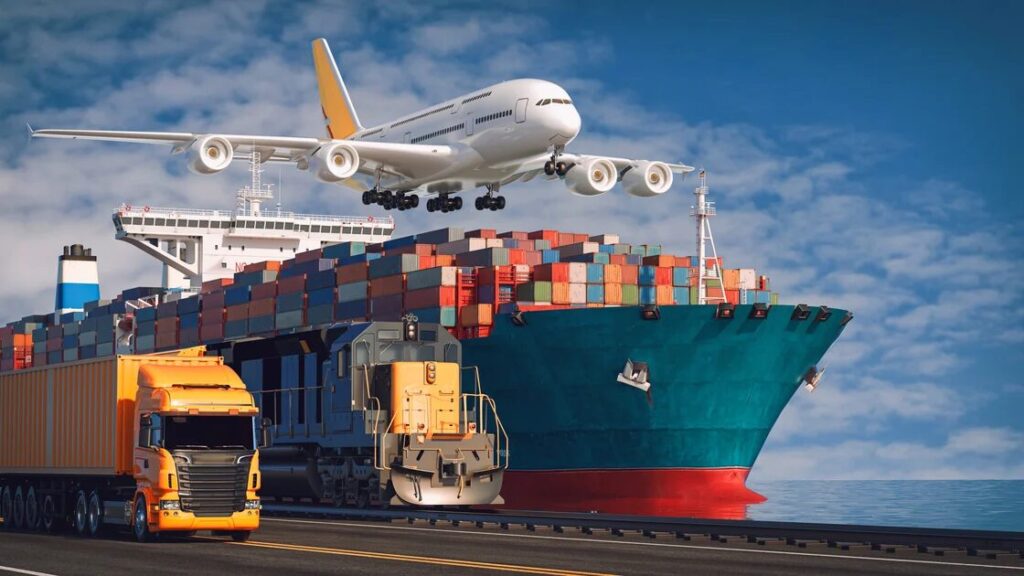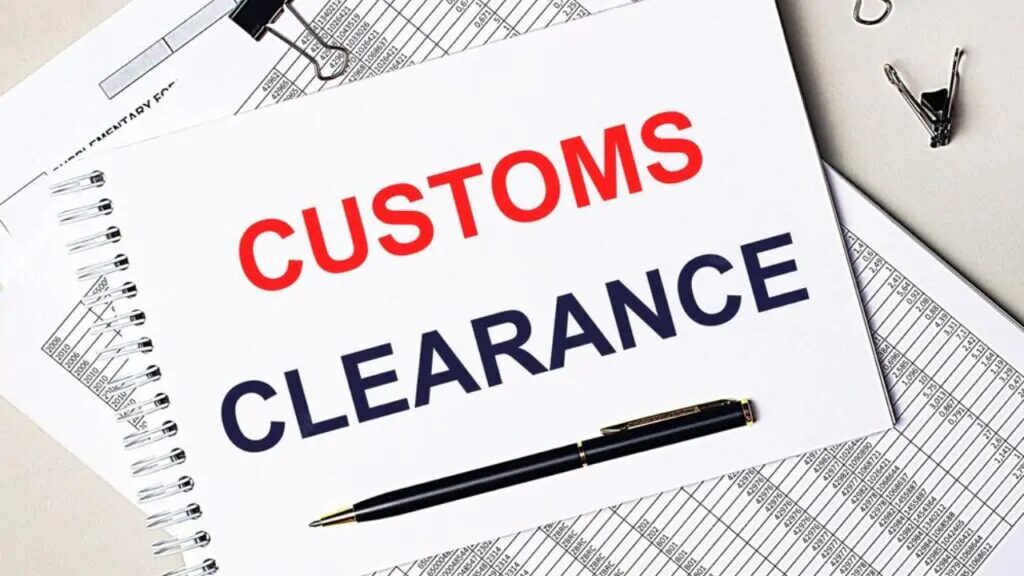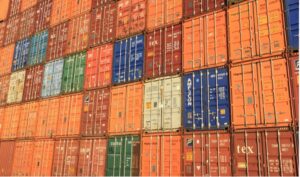If you are a business owner who wants to import goods from China to Ireland, you may be wondering what is the best way to ship your products. There are many factors to consider when choosing a shipping method, such as the cost, speed, reliability, safety, and environmental impact of each option. In this article, we will provide an overview of the main shipping solutions available for China to Ireland trade, and compare their advantages and disadvantages. We will also cover the customs and documentation requirements that you need to comply with when importing goods from China to Ireland. By the end of this article, you should have a better idea of how to choose the right shipping method for your business.
Overview of China to Ireland Shipping Solutions

There are three main modes of transportation that you can use to ship goods from China to Ireland: air freight, sea freight, and road freight. Each mode has its own characteristics, benefits, and drawbacks, depending on the type, volume, weight, value, and urgency of your cargo. Let’s take a look at each mode in more detail.
Air Freight Shipping
Air freight is the fastest and most reliable way to ship goods from China to Ireland. It usually takes only a few days to deliver your cargo by air, compared to weeks or months by sea or road. Air freight is also the most secure mode of transportation, as your goods are handled by fewer intermediaries and are less exposed to theft, damage, or loss. Air freight is ideal for shipping high-value, perishable, fragile, or time-sensitive goods, such as electronics, pharmaceuticals, fashion items, or fresh produce.
However, air freight is also the most expensive and least eco-friendly way to ship goods from China to Ireland. Air freight charges are based on the weight and volume of your cargo, and can vary significantly depending on the demand, supply, and seasonality of the market. Air freight also has a high carbon footprint, as it consumes a lot of fuel and emits a lot of greenhouse gases. Air freight is not suitable for shipping bulky, heavy, or low-value goods, such as furniture, machinery, or raw materials.
Sea Freight Shipping
Sea freight is the most economical and eco-friendly way to ship goods from China to Ireland. It usually costs much less than air freight, as sea freight charges are based on the size and number of containers that you use, rather than the weight and volume of your cargo. Sea freight also has a low carbon footprint, as it consumes less fuel and emits less greenhouse gases than air freight. Sea freight is ideal for shipping large, heavy, or low-value goods, such as furniture, machinery, or raw materials.
However, sea freight is also the slowest and least reliable way to ship goods from China to Ireland. It can take several weeks or even months to deliver your cargo by sea, depending on the distance, route, weather, and congestion of the ports. Sea freight is also subject to various risks and uncertainties, such as delays, disruptions, damage, or loss due to piracy, accidents, natural disasters, or political instability. Sea freight is not suitable for shipping high-value, perishable, fragile, or time-sensitive goods, such as electronics, pharmaceuticals, fashion items, or fresh produce.
Road Freight Shipping
Road freight is a convenient and flexible way to ship goods from China to Ireland. It allows you to transport your cargo directly from the origin to the destination, without the need for transshipment or intermediate handling. Road freight is also easy to track and monitor, as you can use GPS or other devices to locate your goods at any time. Road freight is ideal for shipping small, medium, or urgent goods, such as samples, spare parts, or documents.
However, road freight is also the most limited and regulated way to ship goods from China to Ireland. It can only be used for certain types of goods that are allowed to cross the borders, and it requires a lot of paperwork and documentation to comply with the customs and immigration rules of each country. Road freight is also affected by various factors, such as traffic, road conditions, tolls, or checkpoints, that can cause delays, disruptions, or extra costs. Road freight is not suitable for shipping large, heavy, or low-value goods, such as furniture, machinery, or raw materials.
Comparison of Shipping Costs and Timeframes

The cost and time of shipping goods from China to Ireland depend on many factors, such as the mode of transportation, the type, volume, weight, value, and urgency of your cargo, the distance, route, and season of the shipment, and the demand, supply, and competition of the market. Therefore, it is difficult to give a general estimate of the shipping costs and timeframes, as they can vary significantly from case to case. However, to give you a rough idea, here are some examples of the average shipping costs and timeframes for different modes of transportation, based on the data from Freightos, a leading online freight marketplace.
| Mode | Cost (per kg) | Time (in days) |
|---|---|---|
| Air Freight | $5.00 – $10.00 | 3 – 7 |
| Sea Freight | $0.50 – $1.00 | 30 – 60 |
| Road Freight | $1.00 – $2.00 | 15 – 30 |
As you can see, air freight is the most expensive and fastest way to ship goods from China to Ireland, while sea freight is the cheapest and slowest way. Road freight is somewhere in between, depending on the distance and conditions of the roads. Of course, these are only average figures, and the actual costs and timeframes may differ depending on your specific situation. Therefore, it is advisable to compare different quotes and options from different freight forwarders and carriers before making a final decision.
Customs and Documentation Requirements

When shipping goods from China to Ireland, you need to comply with the customs and documentation requirements of both countries, as well as the European Union (EU), of which Ireland is a member. These requirements are designed to ensure the safety, security, and legality of the goods, as well as the collection of taxes and duties. Failing to comply with these requirements can result in delays, fines, penalties, or confiscation of your goods. Therefore, it is important to prepare and submit the correct and complete documents for your shipment, and to pay the applicable taxes and duties.
Some of the main documents that you need to provide when shipping goods from China to Ireland are:
- Commercial Invoice: This is a document that describes the details of your goods, such as the description, quantity, value, currency, origin, and destination of your goods. It is used to determine the customs value and classification of your goods, as well as the amount of taxes and duties that you need to pay.
- Packing List: This is a document that lists the contents of each package or container in your shipment, such as the number, weight, volume, and marks of each package or container. It is used to verify the quantity and condition of your goods, as well as to facilitate the loading, unloading, and inspection of your goods.
- Bill of Lading (BOL) or Air Waybill (AWB): This is a document that serves as a contract of carriage and a receipt of delivery between you and the carrier. It contains the information of the shipper, consignee, carrier, mode of transportation, route, and date of the shipment, as well as the number, weight, volume, and description of your goods. It is used to track and trace your goods, as well as to claim the ownership and responsibility of your goods.
- Certificate of Origin (COO): This is a document that certifies the origin of your goods, such as the country or region where your goods were produced or manufactured. It is used to determine the eligibility of your goods for preferential tariffs or trade agreements, such as the EU-China Comprehensive Agreement on Investment (CAI), which is expected to be ratified in 2024.
- Other Documents: Depending on the type, value, and destination of your goods, you may need to provide other documents, such as licenses, permits, certificates, or declarations, to comply with the specific regulations or standards of China, Ireland, or the EU. For example, you may need to provide a sanitary or phytosanitary certificate for agricultural or animal products, a conformity or safety certificate for electrical or mechanical products, or a declaration of conformity for products that fall under the EU’s CE marking scheme.
The taxes and duties that you need to pay when shipping goods from China to Ireland are:
- Import Duty: This is a tax that is levied on the customs value of your goods, which is calculated based on the price, freight, and insurance of your goods. The import duty rate varies depending on the classification and origin of your goods, as well as the trade agreements or preferences that apply to your goods. The import duty rate for goods from China to Ireland ranges from 0% to 25%, depending on the product category and the EU’s Common Customs Tariff (CCT).
- Value Added Tax (VAT): This is a tax that is levied on the value added of your goods, which is calculated based on the customs value, import duty, and other taxes and fees of your goods. The VAT rate varies depending on the type and destination of your goods, as well as the VAT regime that applies to your goods. The VAT rate for goods from China to Ireland is generally 23%, unless your goods are exempt or subject to a reduced rate.
- Other Taxes and Fees: Depending on the type, value, and destination of your goods, you may need to pay other taxes and fees, such as excise duty, anti-dumping duty, countervailing duty, or administrative fees, to comply with the specific policies or measures of China, Ireland, or the EU. For example, you may need to pay an excise duty for alcoholic or tobacco products, an anti-dumping duty for products that are sold below their normal value, a countervailing duty for products that are subsidized by their government, or an administrative fee for the processing of your documents.
Choosing the Right Shipping Method for Your Business

As you can see, there are many factors to consider when choosing a shipping method for your business. There is no one-size-fits-all solution, as different modes of transportation have different pros and cons, depending on your specific needs and preferences. Therefore, it is important to evaluate your options carefully and weigh the trade-offs between cost, speed, reliability, safety, and environmental impact of each mode. You should also consult with a professional freight forwarder or carrier who can advise you on the best shipping solution for your business, and help you with the logistics, customs, and documentation of your shipment.





